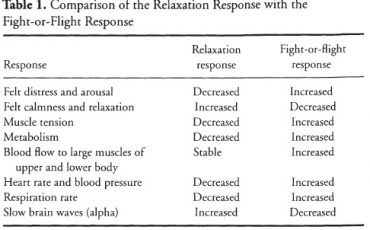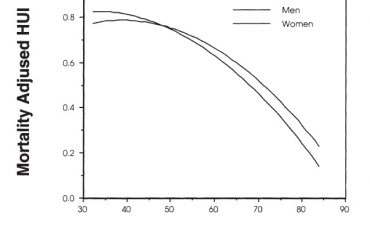Category: Health Psychology
-

Religion and Health
Religion and health have always been, and continue to be, important aspects of human existence. Throughout history, civilizations believed that health and disease were related to particular religious beliefs or practices. For example, some Christians believed that good health was the result of proper Christian living and poor health was a punishment for sin. Though…
-

Relaxation Response
Despite inconsistencies and ambiguities associated with the concepts of stress and coping, the popular press regularly discusses the ill effects of stress on physical and psychological well-being and a variety of behavioral antidotes, including aroma therapy, biofeedback, and meditation. Although the possible adverse effects of stress have been noted for thousands of years, the scientific…
-

Rehabilitation Psychology
Due to the increased awareness of the important influences of emotional and behavioral factors on health and illness, the last two decades have seen a substantial increase in the number of psychologists working in medical settings. Although most are employed in departments of psychiatry, psychologists have also become valuable members of other medical specialties including…
-

Reactivity Hypothesis
Cardiovascular Reactivity To Laboratory And Real-Life Challenges Although homeostasis is a common characteristic of the underlying physiology of humans and most other life forms, our regulatory systems possess the adaptive capacity to mount relatively dramatic temporary changes to respond to and even anticipate challenges. For the cardiovascular system, some challenges are as simple and routine…
-

Quality of Life
Health is probably the most valued human asset. In fact, studies on the preference for different states of being show that virtually everyone rates health as most important. Despite the perceived importance of health, health status has remained difficult to define. There are two common themes in definitions of health. First, premature death is undesirable,…
-

Public Health
Public health refers to those activities by which a society attempts to increase life expectancy, decrease morbidity, and help improve health-related quality of life. A distinction is sometimes made between clinical or high-risk approaches to disease treatment and prevention versus population-based strategies. Although there is some utility in distinguishing between these approaches, they should be…
-

Psychotherapy
The term psychotherapy refers to the use of psychological (as opposed to physical) treatments to improve physical and mental health by relieving symptoms, helping patients manage or adjust to stressors, decreasing distress, and enhancing well-being. To some practitioners psychotherapy is a science; to others it is more of an art form. An abiding belief in…
-

Psychosomatic Medicine
The term psychosomatic is derived by combining two Greek roots, psyche (“mind”) and soma (“body”). Psychosomatic medicine refers both to a scientific paradigm and medical institutions (journals, textbooks, learned societies, medical schools) that are premised on the inextricable physiological relationship between mind and body. The psychosomatic approach to research, education, and treatment acknowledges the potential…
-

What is Psychophysiology?
Psychophysiology, a discipline that traces its roots back to ancient Greek society, is one of several scientific disciplines that examine relations between mind and body. Psychophysiology has traditionally been defined as any research in which the dependent variable is a physiological measure and the independent (or predictor) variable is a behavioral one. Studies examining how…
-

Psychoneuroimmunology
Introduction Health psychologists are concerned with the effects that psychological states and processes have on health and disease. Credible scientific enquiry into these connections began with Dunbar and Alexander, both of whom proposed that specific psychological factors caused or predisposed individuals to specific diseases, giving rise to the theory of specificity. Engel subsequently described the…